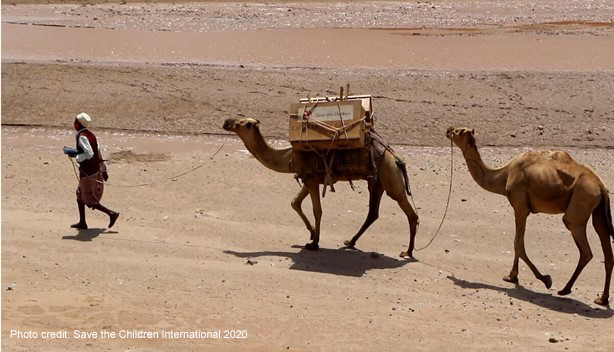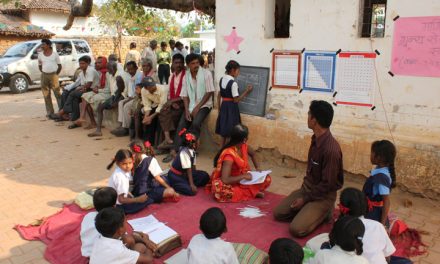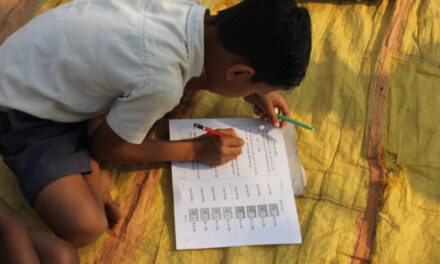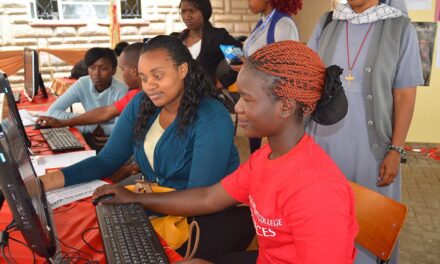This article was written by Abdirazak Haybe, Education Columnist based in Jigjiga, Somali Region of Ethiopia.
Ethiopian pastoralists live a complicated life in a harsh environment, having to deal with a lack of water and climatic diversity, in areas that are remote, inaccessible, prone to conflict, vulnerable and facing critical food insecurity. Despite the climate crisis, pastoralists adapt and manage to maintain their way of life. In the era of digitalisation and technology advancement, pastoralist children face a digital divide and exclusion from technology usage. It is paramount for the Ministry of Education and Regional State Education Bureaus to ensure inclusion and accessible education for all segments of society. However, pastoralist children often face significant barriers to gaining quality education.
Global commitments towards pastoralist education have paved the way for the Ethiopian government to fulfill national and international obligations of Universal Primary Education (UPE), Education for All (EFA), Millennium Development Goals (MDGs) and Sustainable Development Goals (SDGs). The Ethiopia Education and Training Policy aims to decentralise educational management and restructure the entire education system of the country – as part of the government commitment to creating an enabling environment for deprived and underprivileged pastoralist and agro-pastoralist children to access inclusive and quality education. The formulation and implementation of the Pastoralist Education Strategy was one of the robust pioneers explored by the Ministry of Education along with multiple partners engaged in the education sector, but the proposed approach and its implementation does not respond to the real context of a mobile pastoral society. This article explores the importance of pastoralist education and emphasises measures being taken to empower these marginalised communities through building relevant skills and knowledge.
Persisting challenges faced by pastoralist children
Ethiopian pastoralist children, particularly in the Somali Region, face numerous obstacles in accessing inclusive, equitable and quality education. The pastoralist migratory lifestyle poses substantial challenges as it does not fit with the traditional school structure, making it difficult for children to attend school regularly. Furthermore, their location in geographically-isolated places, with limited infrastructure and limited investment from the government, further contribute to their marginalisation within the formal education system.
In addition, socio-economic inequalities and poor education infrastructure prevalent in pastoralist societies often result in children, particularly girls, being forced into early marriage or engaging in labour-intensive activities instead of attending school. This preserves the cycle of poverty and denies them the opportunity to escape their circumstances. There are ways of helping these children:
- Alternative basic education (ABE) programmes must be designed to be flexible and adapt to the different needs of children and communities living in remote and hard-to-reach pastoralist areas of the country, with limited basic infrastructure and other socio-economic development.
- Education delivery modalities need to align with the livelihoods style of the mobile pastoralist society.
- Provision of quality education for pastoralist children needs to be relevant for their contexts and way of life.
- ABE centres need to have facilitators from the pastoralist society.
- Parent-teacher associations (PTAs), which are supposed to manage education timetables, also need to have an active role in managing the ABE centres.
- ABE facilitators and teachers need to pack up and move with the communities to ensure pastoralist children can continue their education.
- Teachers’ qualifications must be raised and more continuous professional development provided by the regional education bureaus.
- Pastoralist education needs to build resilience through programmes that mitigate the continuous impacts of climate change.
- ABE programmes are currently limited to lower primary grades and must be rolled out to upper primary grades.
- A strong tracking system of students’ learning is needed, with trained educational personnel and PTAs monitoring their progress.
- Schools need investment in infrastructure and more qualified teachers.
Promoting and empowering pastoralist education
Education is a crucial tool for enabling individuals to realise their full potential and participate in the socio-economic development of their communities. Pastoralist communities have immense potential to contribute to the national economic development, yet receive less government investment. Investing in pastoralist education has the potential for numerous benefits to pastoralist children – equipping them with basic literacy and numeracy skills, augmenting their ability to manage livestock effectively, market their products, and negotiate a fair price.
Educating pastoralist communities also helps them to improve their understanding of environmental conservation and promotes sustainable grazing practices to protect fragile ecosystems. To this end, holistic development and better financing of pastoralist education could result in a better future and comprehensive development that will break the cycle of poverty within the pastoralist community, through:
- Crafting context-appropriate education modules that are relevant to pastoralist lives;
- Mobile schools equipped with essential learning materials, which adapt to the migratory routes of pastoralist communities, enabling children to receive education while remaining close to their families and herds;
- Community-based schools within pastoralist communities to minimise children’s travelling distance – offering a meaningful learning experience by incorporating cultural values, traditions and the pastoralist curriculum;
- Sensitisation and advocacy programmes, emphasising to government policymakers and the wider public about the importance of pastoralist education and inclusive polices;
- Expansion of pastoralist education beyond lower primary into upper primary levels to improve the transition and completion rate of pastoralist children;
- Replicating and cascading digital mobile camel library initiatives by Save the Children International, enabling pastoralist children to learn through digital tablets with age-appropriate and relevant supplementary reading materials in their local language and English;
Conclusion
Pastoralist education is a prime driver for inclusive development for underserved and marginalised communities living in remote and hard-to-reach areas of the region. Recognising the importance of pastoralist education and addressing the barriers faced by these pastoralist communities are crucial steps towards achieving the SDGs, by ensuring that no pastoralist child is left behind, and upholding their right to education. It is the responsibility of both federal and regional governments to recognise the potential contribution of the pastoralist communities to the socio-economic development of the country.
Contextualised and relevant education that is flexible and easily adaptable by pastoralist children must be provided and is the responsibility of the Regional State Education Bureaus and the Ministry of Education. Pastoralist communities deserve decent learning opportunities which enable their children to acquire and master foundational skills and transition to the next level of learning. Such commitments could lead to the nurturing of a bright future for all underserved pastoralist children experiencing long-term marginalisation.





